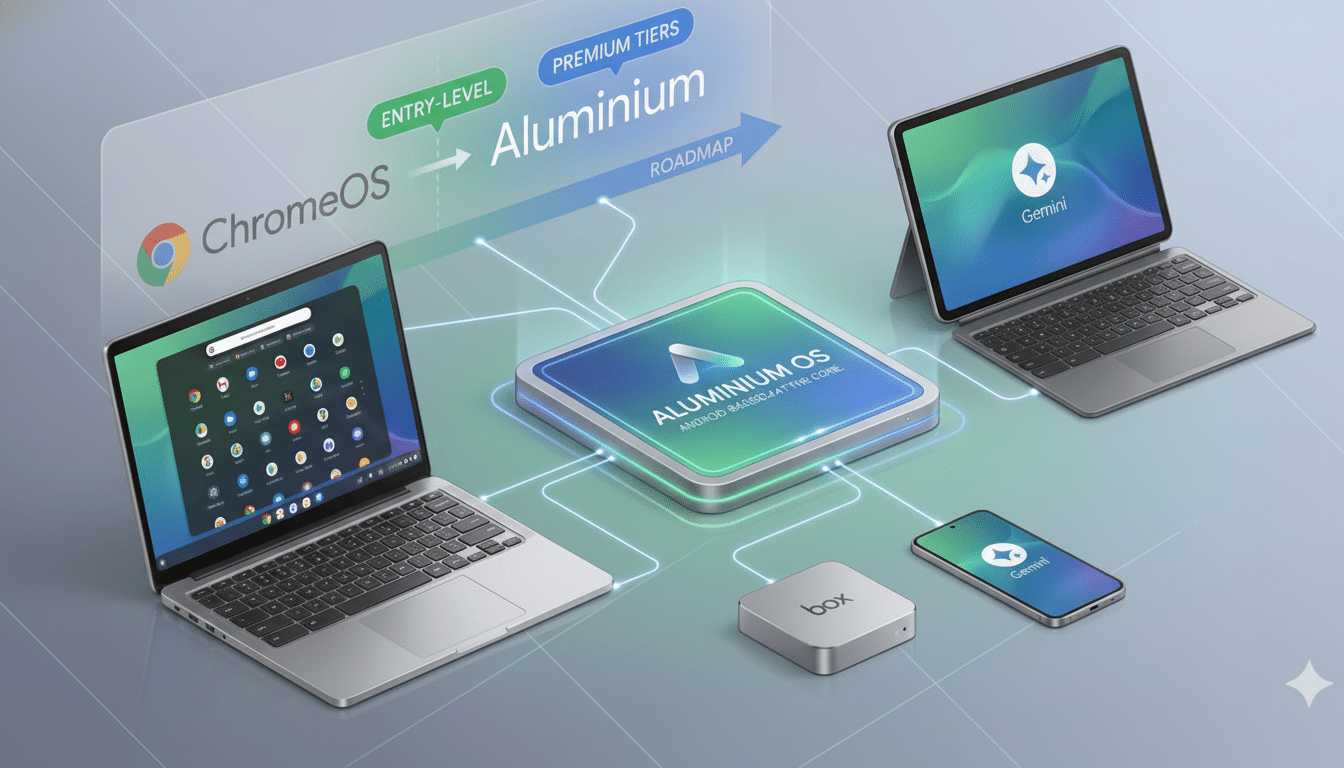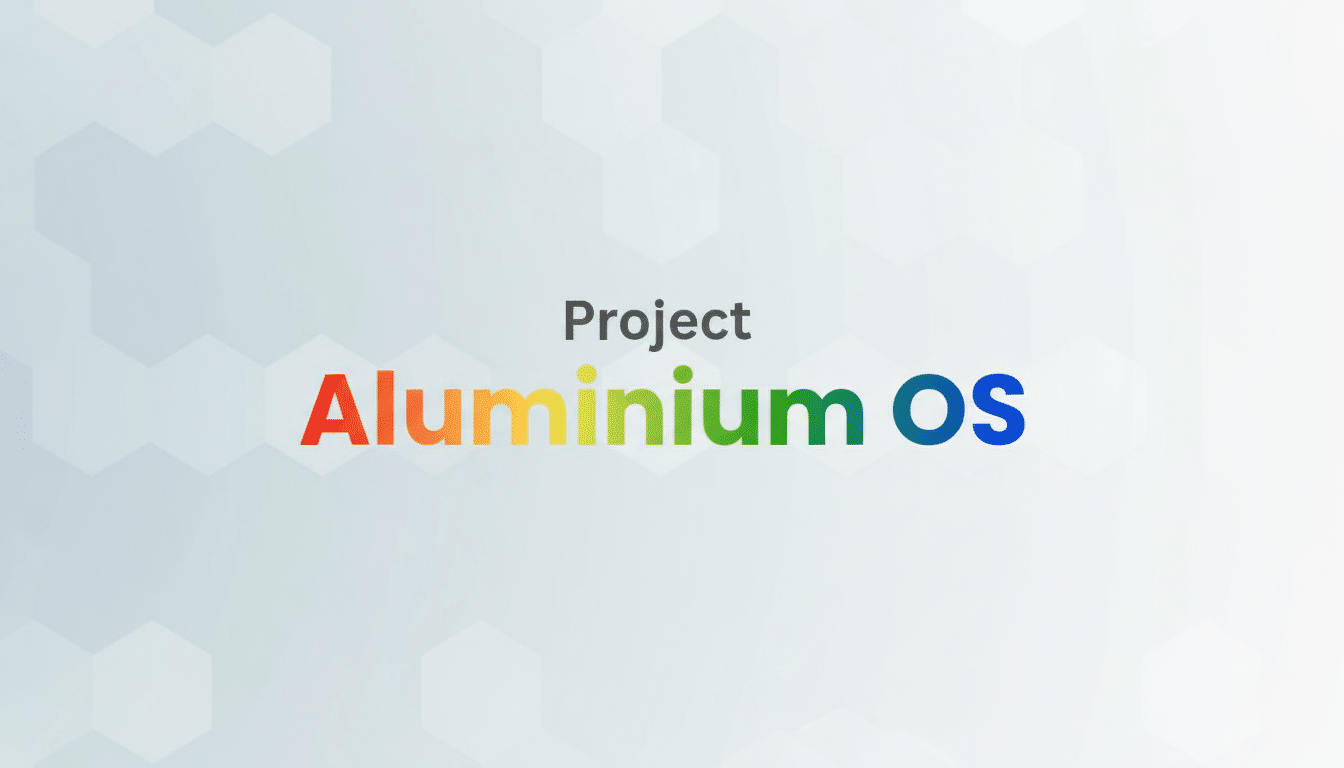A newly discovered Google job posting refers to a massive makeover in the company’s PC strategy that signals the existence of a brand-new Android-derived OS codenamed Aluminium, as well as laying out how Google would move its ChromeOS customers off of it and onto this AI-first platform. The job, for a senior product manager in Taipei and since taken down, specifically mentioned “premium devices and experiences,” suggesting a push far beyond the classroom Chromebooks that have been Google’s PC face for years.
An Android for PCs, with AI at the core of the platform
The listing listed Aluminium as an AI-powered Android OS, which aligns with how Google has been indicating the power of holding on to Gemini and sticking it in everything. And it would shorthand as ALOS and describe multiple categories of devices — laptops, detachables, tablets and boxes — with clear tiering language: AL Entry, AL Mass Premium, AL Premium. That taxonomy indicates an OEM-ready platform intended to cover a wide range of breadbox machines up through flagship ultrathins.

If not for the naming, the language feels more like a productization push than a lab experiment. The role involved a maintained roadmap of the portfolio and business continuity as Google “transits” from ChromeOS to Aluminium. Android Authority singled out the find after leaker Frost Core discovered the vmc in a listing, reinforcing months of indications that Google has been testing Android as more of a desktop-level OS and not just a phone-first platform blown up for bigger displays.
Even one spelling — Aluminium over Aluminum — feels deliberate, in the vein of Google’s “ium” branding (Chromium, anyone?). Whether that name sticks, the repeated usage in official job speak means the program is well into planning and partner briefing.
What A ChromeOS Incumbent Would Look Like
ChromeOS established its early presence and appeal in the areas where simplicity mattered most: education fleets, kiosks, and affordable laptops. Its lightweight, web-centric model brought its users low maintenance and robust security, and with the support of Android and Linux apps it matured gradually. But it whispers another center of gravity to me though, one where this whole “native Android apps, AI services and close phone-to-PC continuity not optional stuff” is standard instead of a tack-on.
The migration route is key. Schools and businesses depend on Chrome Enterprise, zero-touch enrollment and policy-rich management. For Aluminium to replace ChromeOS, it needs to inherit those controls, deliver robust multi-user support and provide similar peace of mind that ChromeOS’s verified boot and update model provides. Google will likely tout support for Play-managed apps, smooth sign-in and cross-device uses like call, message and clipboard sync from the Android stable.
Market context and timing for an Android-based PC OS
The PC landscape is hostile to incumbents, but also very fluid. According to StatCounter, Windows is somewhere in the low-70% share of worldwide desktop platforms, macOS around the mid-teens and ChromeOS in the low single digits. In education, ChromeOS has long led in U.S. K-12 device deployments, according to Futuresource Consulting, but shipments of Chromebooks waned after a pandemic-driven surge, Canalys and IDC have said.

An Android-based PC OS arrives at a time when ARM-based devices are shaking up assumptions about battery life, instant-on, and AI acceleration. Microsoft has gone all-in on Windows for ARM, Apple proved out the formula with its own silicon and Qualcomm, MediaTek and a host of other vendors are now scrambling to cram NPU performance into mobile-first chipsets. An AI-native Android desktop could help Google harness that momentum, unify its app story, and make AI assistants and on-device generative features feel like organic parts of laptops, not like something bolted onto them.
Hardware strategy and Taiwan’s role in Aluminium OS
The role being set in Taipei is revealing. PC design and manufacturing revolves around Taiwan already, with ODMs that are making Chromebooks (among others), Windows laptops and Android tablets. Google also said it was establishing a new Taipei hub for AI infrastructure hardware, highlighting the company’s commitment to the region’s engineering and supply chain depth. If Aluminium is heading to multiple OEMs in multiple price bands, partnership with Taiwan partners is going to be vital.
The emphasis in the listing on “premium devices” indicates that Google wants to demonstrate Aluminium on aspirational hardware first — thin-and-light bodies, high-refresh screens, rapid connectivity, and capable NPUs — before scaling to entry tiers. That playbook reflects what ChromeOS did with “Chromebook Plus,” and how Android tablets sprang back around through better screens and stylus support. Look for reference designs, or early flagship models that show off AI features like live transcription, on-device summarization, and context-aware multitasking.
Key questions and what to watch as Aluminium develops
Several technical questions will determine the Aluminium path: Does it target ARM first, followed later by an x86 path? How far will it go when it comes to windowing, file management, and desktop-class multitasking vs ChromeOS and Windows? What enterprise-class MDM and security features will be available at launch? And what about how Google will take care of Chrome browser integration, since Chrome is not only core to ChromeOS but also a cross-platform linchpin for the open web?
Signals to watch for include developer previews; documentation around device management, identity, and security; OEM partnerships from the top Chromebook makers in the world; and benchmarks around battery life and on-device AI performance. If Google is successful, Aluminium could give Android access to the massive app library of a specialized PC posture — providing a viable alternative in a market that’s been Windows-centric and Mac-divided for far too long — endowing Google with a single AI-native platform from phone to laptop.

